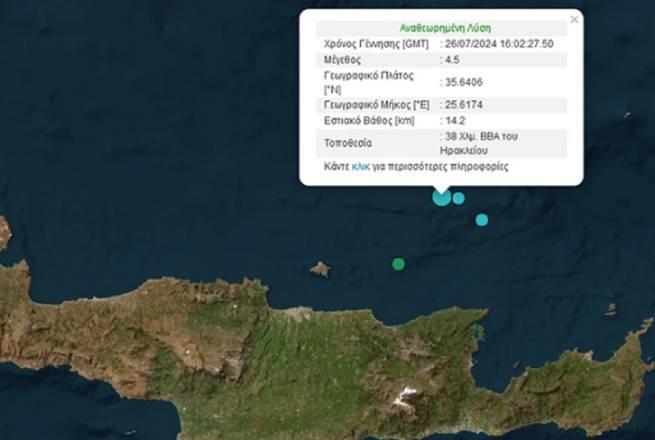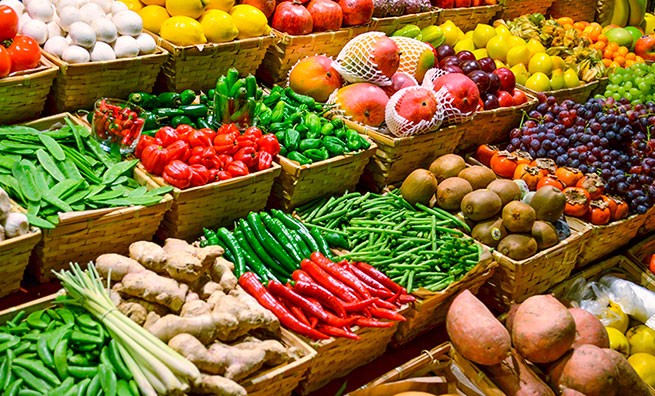Seasonal vegetables and fruits are now becoming a luxury item for households in Greece, and the government, taking advantage of the presence of “strong” opposition, avoids discussing this problem. People are moaning, and the prices of everything are rising …
In fact, this indifference is due to the fact that the 2024 budget is expected to increase revenue from indirect taxes, which the government then plans to redistribute to the poor in the form of benefits and subsidies. However, 2024 still needs to survive.
Rising prices for groceries on store shelves are particularly angering manufacturers who are protesting against low purchase prices and exorbitant markups of retail chains. For example: the retail price of a summer watermelon reaches 1 euro per kilogram, while producers sell for 25-30 cents per kilogram, and the wholesale price on average approaches 50 cents per kilogram (having jumped from 28 cents last year).
Similarly, prices for peaches and nectarines in supermarkets reached 2.50 euros/kg, while producer prices do not exceed 50-70 cents/kg, and wholesale prices are about 1-1.30 euros/kg. The first grapes appeared with a price of 2.90-3 euros/kg, with a wholesale price of 1.50 euros (from 90 cents last year).
https://rua.gr/news/bissecon/56724-gretsiya-pobila-rekord-tsen-na-frukty.html
In addition, the growth in food prices is also confirmed by the latest Eurostat data on the cost of fruits, according to which in June, Greece experienced the highest monthly price increase – 24.5% at the level EUand in Estonia – 7.2%. According to the Greek Statistics Office, the increase in fruit prices in June compared to May was even higher – 28.8%.
A similar picture is seen with summer vegetables such as green beans, which are sold even at 5 euros/kg, while the wholesale price is approaching 3 euros (from 1.30 euros last year), and a few okra, which has skyrocketed to 6-7 euros, while the wholesale price is at the level of 3.5 euros (from 3 last year).
Salads have even risen in price: tomatoes are sold at 1.85 euros per kilogram (wholesale price 1.10 euros, compared to 85 cents last year), peppers are sold from 2.45 to 3.50 euros per kilogram (wholesale price 1.50 euros, up from 60 cents last year), while eggplant reaches 1.5 euros per kilo (70 cents wholesale price, up from 50 cents last year).
Many households have cut back on or even eliminated vegetables, as they often cost more than the main meats, poultry, and fish, and even legumes, to prepare a family meal. Clearly, something is being done in the supply chain to ensure that, for example, a watermelon hits the shelf at three times the price of the producer.
Be that as it may, in some cases, producer prices barely cover the sharply increased production costs caused by the repeated and uncontrollable rise in prices for fertilizers, agricultural products, oil and electricity, caused by the embargo against Russia.
https://rua.gr/news/bissecon/56859-fuel-tseny-rastut-nesmotrya-na-ogranicheniya-pribyli.html
At the same time, liquid fuel prices are rising in anticipation of the August rush: unleaded petrol has risen in price to an average of 1.962 euros / liter across the country, which is almost 10 cents more than at the beginning of July. However, already in 12 counties the price has exceeded the €2/litre barrier, with extreme prices observed in popular tourist destinations such as the islands. Thus, the “champions” are the islands of the Cyclades and the Dodecanese with average prices of 2.205 and 2.120 euros / liter, respectively, which in some places reach 2.4-2.25 euros.
However, diesel prices have also jumped – the national average is 1.688 euros / liter (+11 since July 1), which puts additional pressure on production sectors such as agriculture and transport.







More Stories
Journalistic investigation: who is he, the Russian arrested in France – an FSB officer or a boastful alcoholic (video)
Hurriyet: “Greece asked Turkey for permission to lay cable – Turkish jurisdiction recognized”
France: 'Chaos' on trains and metro. Airport evacuated. Dozens of attacks on athletes and tourists